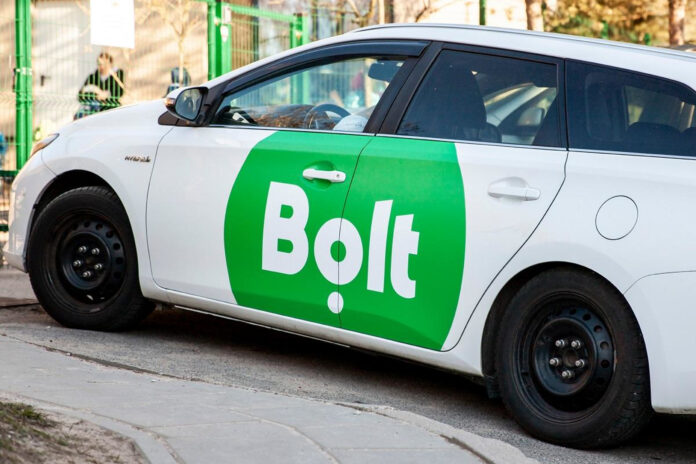Hundreds of partner drivers in Kenya recently turned off their ride-hailing apps and coerced passengers into paying more for trips, in what was termed a driver strike against the earnings offered.
These drivers and bodaboda riders have felt the pinch of the tough economy and the high cost of living. Coupled with the rising prices of fuel and inflation on vehicle maintenance parts as well as service fees, they felt vindicated to take to the streets to protest for better wages.
Ride-hailing app Bolt, which launched in Kenya back in 2016 has made fare adjustments to these prices which have eased the tough situation but the drivers somehow feel the platform hasn’t sufficiently addressed their financial struggles.
“Responsibilities are growing, but our earnings are declining. What would you do when you have to pay for bills and your only source of money does not pay attention to your pain?” asked a driver working with 3 different platforms.
Seeking to address the worries held by the drivers, Bolt released a Pricing Dynamics and Solution statement seen by Bizna Kenya. Among the issues Bolt recognised to affect driver earning potential is vehicle ownership.
The company acknowledged employed drivers tend to earn less because they have to pay vehicle owners, many of whom are repaying car loans. In contrast, drivers who own their cars enjoy better earnings since they avoid these additional costs.
To help drivers improve their financial situation, Bolt has explored solutions such as a partnership with Hakki Africa to offer vehicle financing options aimed at empowering drivers to own their vehicles and achieve greater income stability.
Many drivers believe that increasing base fares, as well as rates per kilometre and per minute, will solve their income challenges. However, Bolt insists that pricing alone isn’t a complete solution to the ongoing crisis.
The platform determines the price of each trip by considering three main components: the minimum fare, distance, and time taken for the trip. Adjusting these factors helps balance both demand and supply, but Bolt is focusing on longer-term solutions beyond just fare increases.
In addition to vehicle financing initiatives, Bolt has introduced several programs to increasingly support drivers. For example, entrepreneurial drivers have been awarded financial support, and the platform regularly hosts wellness and financial workshops.
“We have also recently awarded 10 drivers who showcased their entrepreneurial skills Sh. 280,000 (€2,000) each in a bid to empower them further and push them towards entrepreneurship with an aim of helping them increase their income,” read part of the statement by Bolt.
Another area of concern for drivers is the 18% commission cap that Bolt sticks to, which leaves drivers with 82% of the trip cost. Although drivers have expressed frustration with the additional VAT charge, Bolt has been absorbing the VAT on their behalf to ensure drivers are cushioned against this tax.
Drivers have also complained about discounts offered to passengers, fearing that these discounts might reduce their earnings. However, the firm clarified that any discounts are also fully borne by the company and do not impact driver income. The aim is to maintain a larger pool of riders while keeping the financial burden off the drivers.
“We wish to clarify that any discounts a passenger sees on the app, Bolt bears this cost and it is at no given point, a cost passed on to drivers. Any discounts extended to passengers by Bolt is fully a cost borne by Bolt,” the statement continued.
Bolt has guaranteed its continuous assessment of global best practices to ensure its pricing reflects local economic realities. The platform conducts regular market analyses to benchmark against international pricing models while maintaining transparent communication with drivers about the impact of pricing and commission structures.
Bolt rolls out Driver Selfie Check feature to enhance safety and security on its platform
To address the economic pressures faced by drivers, Bolt suggests that the Kenyan government should play a supportive role by implementing policies such as fuel subsidies and incentives for vehicle ownership.
Additionally, collaboration between the government and ride-hailing platforms could help improve regulations and create a more sustainable environment for drivers and businesses.
Safety remains a priority for Bolt, and the platform has introduced several measures to enhance both driver and passenger safety. These include background checks for drivers, trip monitoring features, and rider identification verification.
Bolt is also continuously working on improving its safety features to ensure a secure experience for all users.
In the coming future, the company will actively be engaged in activities related to the electrification of vehicles in Kenya. In partnership with M-Kopa, the platform has introduced electric boda bodas, providing drivers with low-cost, low-maintenance vehicles.
It is an agenda earmarked for not only supporting sustainability but also helping drivers reduce their operational costs, thus improving their overall earnings.









